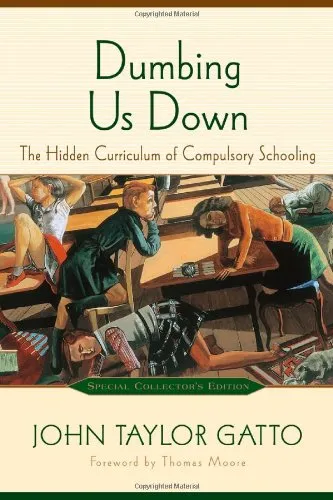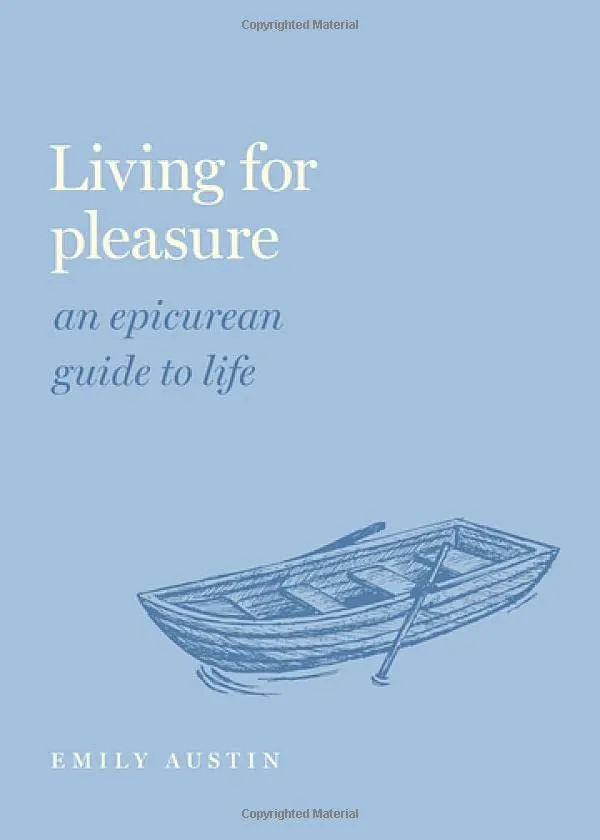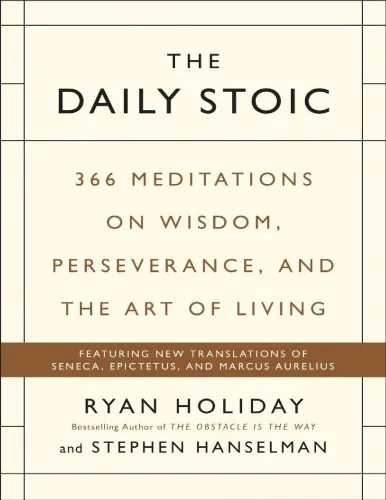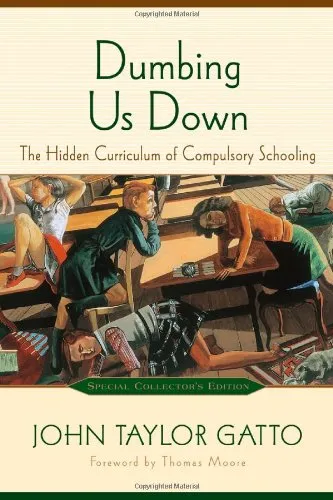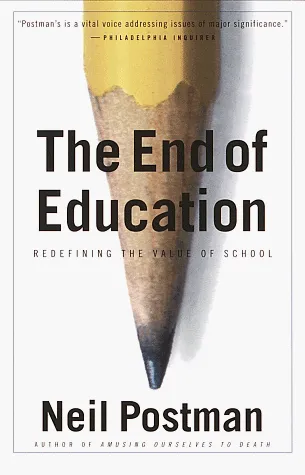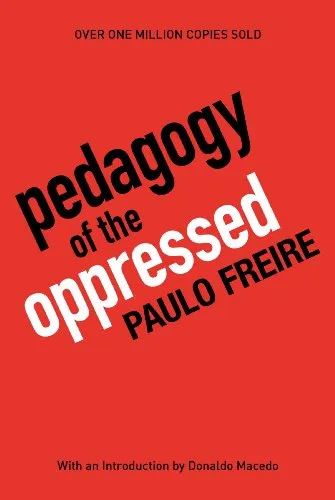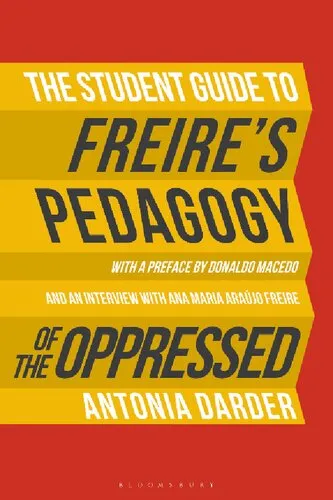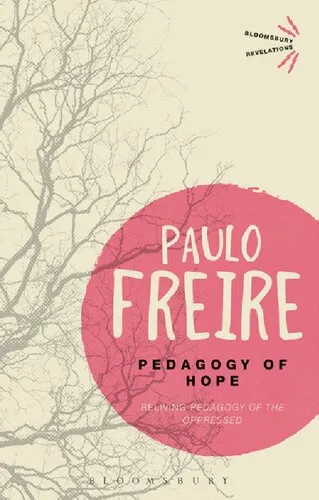Dumbing Us Down: The Hidden Curriculum of Compulsory Schooling
4.2
بر اساس نظر کاربران

شما میتونید سوالاتتون در باره کتاب رو از هوش مصنوعیش بعد از ورود بپرسید
هر دانلود یا پرسش از هوش مصنوعی 2 امتیاز لازم دارد، برای بدست آوردن امتیاز رایگان، به صفحه ی راهنمای امتیازات سر بزنید و یک سری کار ارزشمند انجام بدینکتاب های مرتبط:
خلاصه تحلیلی کتاب
کتاب Dumbing Us Down: The Hidden Curriculum of Compulsory Schooling اثر جان تیلور گاتو، یکی از برجستهترین معلمان و منتقدان نظام آموزشی است که در آن با نگاهی تیزبین و تجربهمحور، به بررسی ابعاد پنهان و اثرات واقعی schooling اجباری میپردازد. این اثر نه یک نقد سطحی، بلکه تحلیلی چندوجهی از ساختاری است که بهجای پرورش آزادی اندیشه، در بسیاری موارد انقیاد، همسانسازی و وابستگی ذهنی را تقویت میکند.
گاتو بهطور مستند نشان میدهد که آموزش اجباری، آنگونه که در ایالات متحده و بسیاری از کشورهای دیگر اجرا میشود، دارای یک hidden curriculum است که به تربیت افرادی سازگار با نظم موجود میانجامد، نه شهروندانی خلاق و مستقل. او با بهرهگیری از تجربیات شخصی خود در کلاس درس، نمونهها و روایتهایی را ارائه میدهد که خواننده را به بازنگری در باورهای رایج درباره schooling وادار میکند.
این کتاب بهطور کلی بر این نکته تأکید دارد که سیستم آموزش اجباری، در طول زمان، ارزشهای متفاوتی را بهطور ناخواسته یا هدفمند به دانشآموزان القا میکند؛ ارزشهایی که ممکن است در تضاد با مفهوم یادگیری واقعی، خودآموزی و رشد فردی باشند.
نکات کلیدی و کاربردی
یکی از مهمترین نکات کتاب، تشخیص و بازشناسی مفهوم hidden curriculum است؛ مفهومی که در فضای رسمی آموزشی به وضوح مطرح نمیشود اما بر شکلگیری نگرشها، باورها و مهارتهای دانشآموزان اثر عمیق دارد.
گاتو با اشاره به مضرات تمرکز بیش از حد بر نمره، آزمون و دیسیپلین خشک، بر اهمیت ایجاد محیطهایی تأکید میکند که در آن افراد بتوانند یادگیری را بهصورت ارگانیک و بر اساس علایق خود تجربه کنند. این سیستم، به جای تغییر واقعی، افراد را برای نقشهای از پیش تعیینشده آماده میکند.
یکی دیگر از نکات کاربردی، توجه به نقش خانواده و جامعه بهعنوان نهادهای مکمل آموزش است. بهزعم گاتو، تنها مدرسه کافی نیست و ایجاد فرصتهای یادگیری در خارج از چارچوب رسمی، بخشی ضروری از فرایند رشد است.
نقلقولهای ماندگار
در این کتاب، جملاتی وجود دارد که میتوانند شروعی برای بحثهای فلسفی و اجتماعی عمیق باشند، زیرا عصارهای از تجربه و اندیشه نویسنده را بهروشنی منتقل میکنند.
آموزش نباید به معنای پرکردن ذهن، بلکه باید به معنای بیدار کردن آن باشد. نامشخص
مدارس امروز بیش از آنکه ذهنها را آزاد کنند، آنها را به یک شکل در میآورند. نامشخص
چرا این کتاب اهمیت دارد
اهمیت این کتاب از اینروست که نهتنها دانش خواننده را درباره schooling به چالش میکشد، بلکه زبان تازهای برای بیان نقدها و دغدغهها در اختیار او قرار میدهد. در جهانی که آموزش رسمی بیش از پیش درگیر استانداردسازی و ارزیابی عددی شده، فهمیدن پیامدهای hidden curriculum یک نیاز فوری و حیاتی برای پژوهشگران، مربیان و والدین است.
این اثر همانند آیینهای است که بسیاری از واقعیتهای نادیدهگرفتهشده را منعکس میکند؛ واقعیتهایی که حتی بهترین دانشآموزان نیز ممکن است از دیدشان پنهان باشد. مطالعه این کتاب به مخاطب کمک میکند از چارچوبی فراتر از کلاس درس به آموزش بنگرد و پرسشهای اساسی درباره هدف واقعی یادگیری مطرح کند.
نتیجهگیری الهامبخش
کتاب Dumbing Us Down: The Hidden Curriculum of Compulsory Schooling دعوتی است برای بازنگری در آنچه آموزش به معنای واقعی باید باشد. این اثر نهتنها به نقد میپردازد، بلکه در لابهلای خطوط خود، بینشی الهامبخش
Analytical Summary
“Dumbing Us Down: The Hidden Curriculum of Compulsory Schooling” is an incisive exploration of the structural flaws embedded in contemporary public education systems. Written by veteran educator John Taylor Gatto, this work pulls back the curtain on what schools really teach—beyond the official curriculum—and reveals a set of deeply ingrained messages that often hinder, rather than help, intellectual and personal growth.
The book consolidates Gatto’s decades of experience in classrooms across New York City, distilling his observations into a compelling critique of compulsory schooling’s unintended consequences. He argues that what children truly learn is not merely reading, writing, and arithmetic, but conformity, dependency, and a narrowing of curiosity. This “hidden curriculum” is rarely articulated in official documents, yet permeates the daily rhythms, hierarchies, and implicit messaging of the educational system.
Rather than focusing solely on test scores or policy debates, Gatto directs attention to the lived experience of students and the cultural assumptions underpinning their instruction. He sketches a portrait of schooling as an institution that often suppresses individuality, stifles community connections, and erodes the capacity for self-directed learning — themes that resonate deeply with educators, parents, and policymakers alike.
Key Takeaways
This work delivers several enduring lessons for anyone invested in the future of education, civic responsibility, and human potential.
First, compulsory schooling as it is widely practiced tends to produce predictable, uniform outcomes that serve bureaucratic needs more than the flourishing of the individual.
Second, the hidden curriculum—those non-explicit lessons students absorb—can undermine creativity and self-reliance by placing excessive emphasis on compliance and external validation.
Third, genuine education is an inherently personal and community-oriented process, requiring flexibility, mentorship, and real-world engagement outside rigid institutional structures.
Finally, meaningful reform must address not only what is taught, but also how and why schooling operates as it does — an area where Gatto’s perspective remains both relevant and challenging.
Memorable Quotes
“The school system is designed to produce a manageable populace, not independent thinkers.” Unknown
“We must abandon the idea that schooling and education are synonymous.” Unknown
“Bureaucracies fear individuality because it resists standardization.” Unknown
Why This Book Matters
In an era dominated by standardized testing, centralized curricula, and industrial models of schooling, “Dumbing Us Down: The Hidden Curriculum of Compulsory Schooling” is a clarion call for reflection and change.
Its insights speak directly to anyone concerned about the long-term cultural and civic implications of our educational systems. By dissecting the hidden lessons embedded in these systems, the book invites stakeholders to critically evaluate the real purpose of schooling and to imagine alternatives that prioritize autonomy, diversity, and resilience over mere conformity.
While some details about its publication history may be unclear—information unavailable where no reliable public source exists—the underlying issues it addresses remain urgent and unresolved in many communities worldwide.
Inspiring Conclusion
“Dumbing Us Down: The Hidden Curriculum of Compulsory Schooling” continues to provoke thought and dialogue decades after its initial release.
Its enduring relevance lies in its ability to challenge accepted norms, urging critical examination of what our schools truly accomplish. By bringing awareness to the implicit messages within compulsory education, the book offers readers a valuable framework to envision and implement meaningful changes in their communities.
For academics, educators, and engaged citizens, the next step is clear: read the book, share its insights, and engage in active discussions about how to transform both the spirit and the practice of education for a more liberated, creative, and human-centered future.
دانلود رایگان مستقیم
شما میتونید سوالاتتون در باره کتاب رو از هوش مصنوعیش بعد از ورود بپرسید
دسترسی به کتابها از طریق پلتفرمهای قانونی و کتابخانههای عمومی نه تنها از حقوق نویسندگان و ناشران حمایت میکند، بلکه به پایداری فرهنگ کتابخوانی نیز کمک میرساند. پیش از دانلود، لحظهای به بررسی این گزینهها فکر کنید.
این کتاب رو در پلتفرم های دیگه ببینید
WorldCat به شما کمک میکنه تا کتاب ها رو در کتابخانه های سراسر دنیا پیدا کنید
امتیازها، نظرات تخصصی و صحبت ها درباره کتاب را در Goodreads ببینید
کتابهای کمیاب یا دست دوم را در AbeBooks پیدا کنید و بخرید
1236
بازدید4.2
امتیاز0
نظر98%
رضایتنظرات:
4.2
بر اساس 0 نظر کاربران
Questions & Answers
Ask questions about this book or help others by answering
No questions yet. Be the first to ask!
